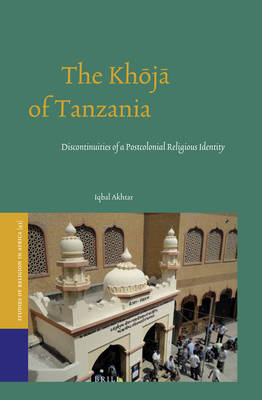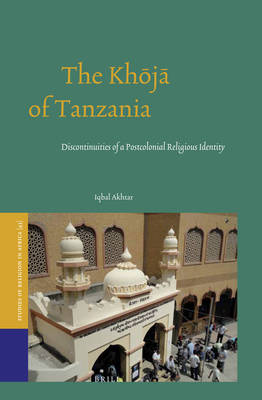
- Afhalen na 1 uur in een winkel met voorraad
- Gratis thuislevering in België vanaf € 30
- Ruim aanbod met 7 miljoen producten
- Afhalen na 1 uur in een winkel met voorraad
- Gratis thuislevering in België vanaf € 30
- Ruim aanbod met 7 miljoen producten
Zoeken
€ 215,45
+ 430 punten
Omschrijving
The Khōjā of Tanzania: Discontinuities of a Postcolonial Religious Identity attempts to reconstruct the development of Khōjā religious identity from their arrival to the Swahili coast in the late 18th century until the turn of the 21st century. This multidisciplinary study incorporates Gujarati, Kacchī, Swahili, and Arabic sources to examine the formation of an Afro-Asian Islamic identity (jamatī) from their initial Indic caste identity (jñāti) towards an emergent Near Eastern imaged Islamic nation (ummatī) through four disciplinary approaches: historiography, politics, linguistics, and ethnology. Over the past two centuries, rapid transitions and discontinuities have produced the profound tensions which have resulted from the willful amnesia of their pre-Islamic Indic civilizational past for an ideological and politicized 'Islamic' present. This study aims to document, theorize, and engage this theological transformation of modern Khōjā religious identities as expressed through dimensions of power, language, space, and the body.
Specificaties
Betrokkenen
- Auteur(s):
- Uitgeverij:
Inhoud
- Aantal bladzijden:
- 244
- Taal:
- Engels
- Reeks:
- Reeksnummer:
- nr. 43
Eigenschappen
- Productcode (EAN):
- 9789004274747
- Verschijningsdatum:
- 14/12/2015
- Uitvoering:
- Hardcover
- Formaat:
- Genaaid
- Afmetingen:
- 160 mm x 241 mm
- Gewicht:
- 521 g

Alleen bij Standaard Boekhandel
+ 430 punten op je klantenkaart van Standaard Boekhandel
Beoordelingen
We publiceren alleen reviews die voldoen aan de voorwaarden voor reviews. Bekijk onze voorwaarden voor reviews.








